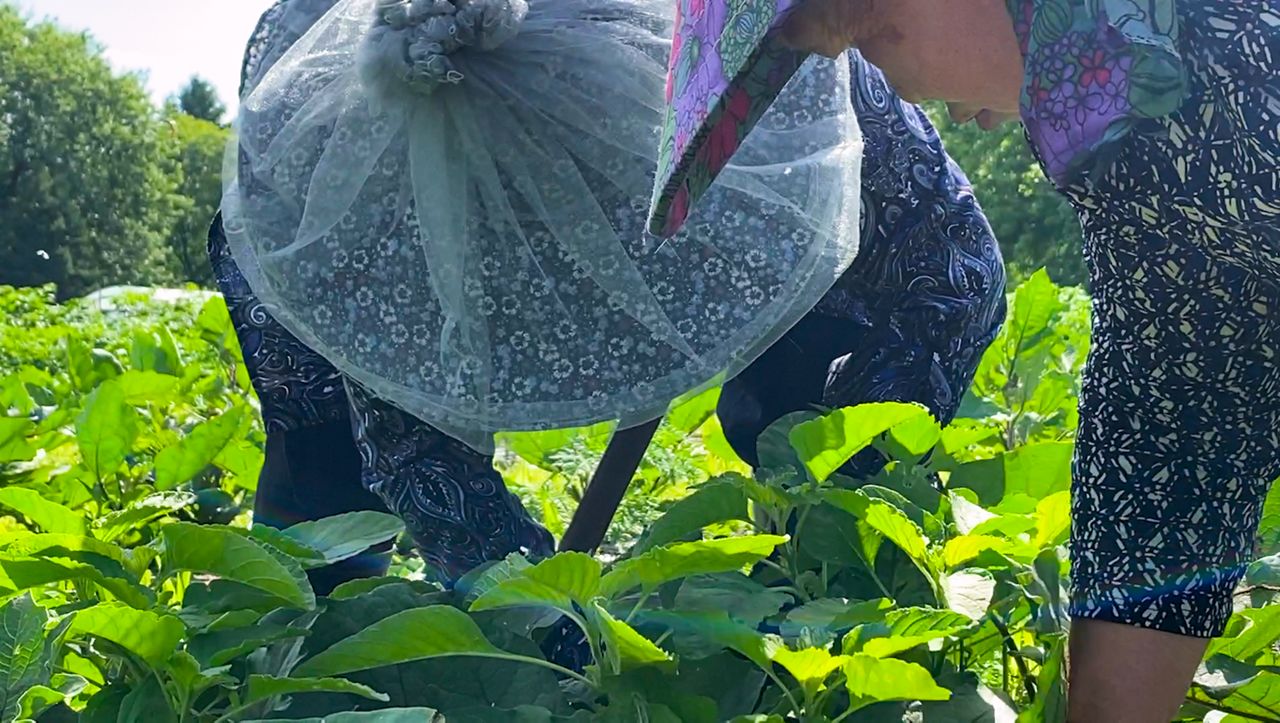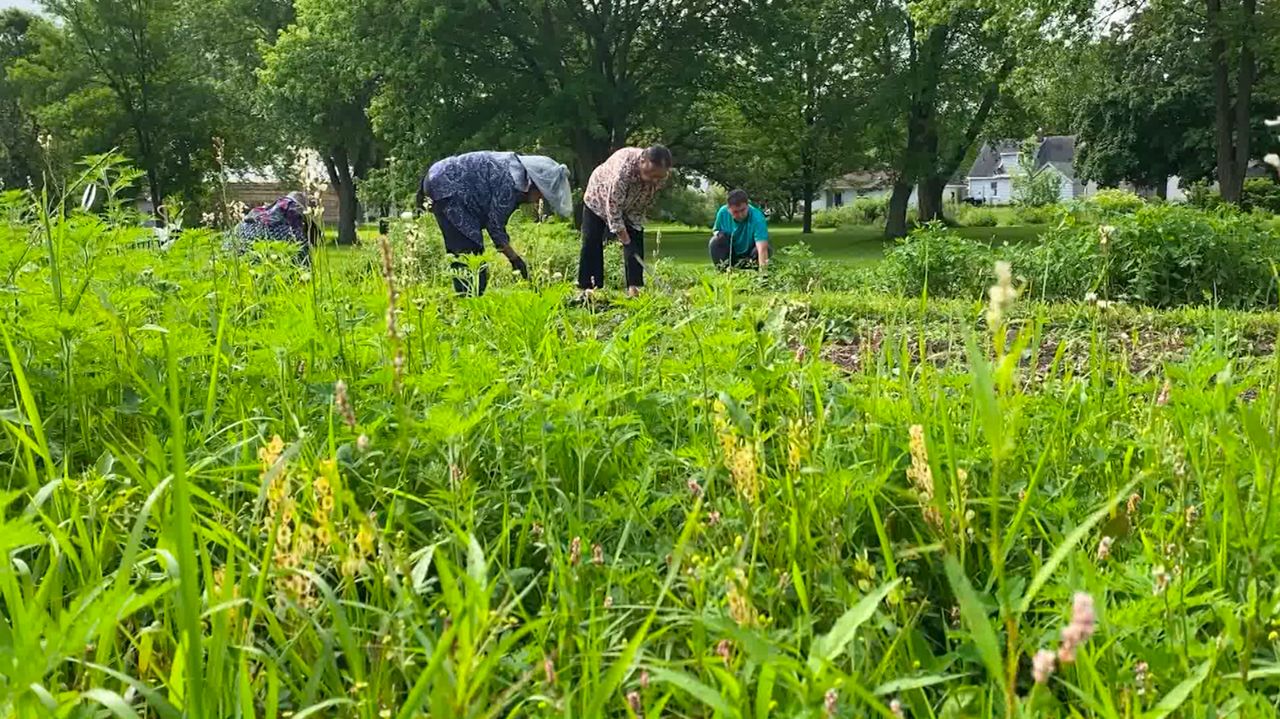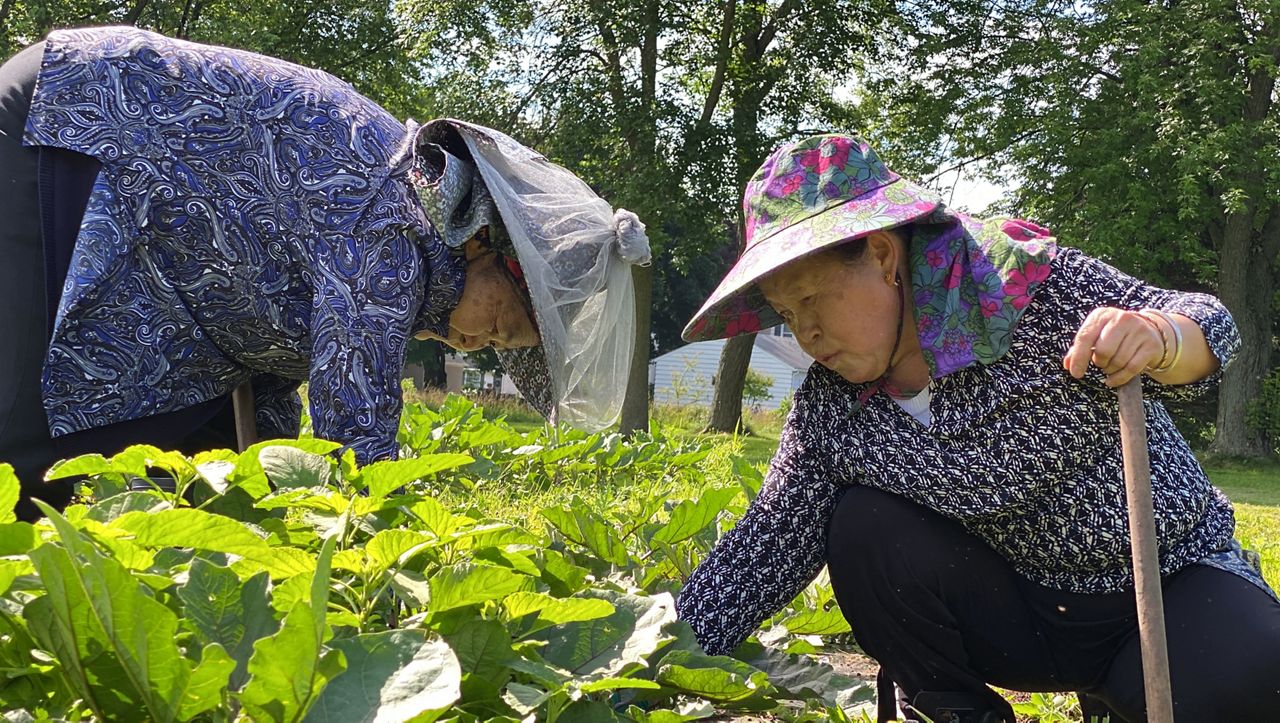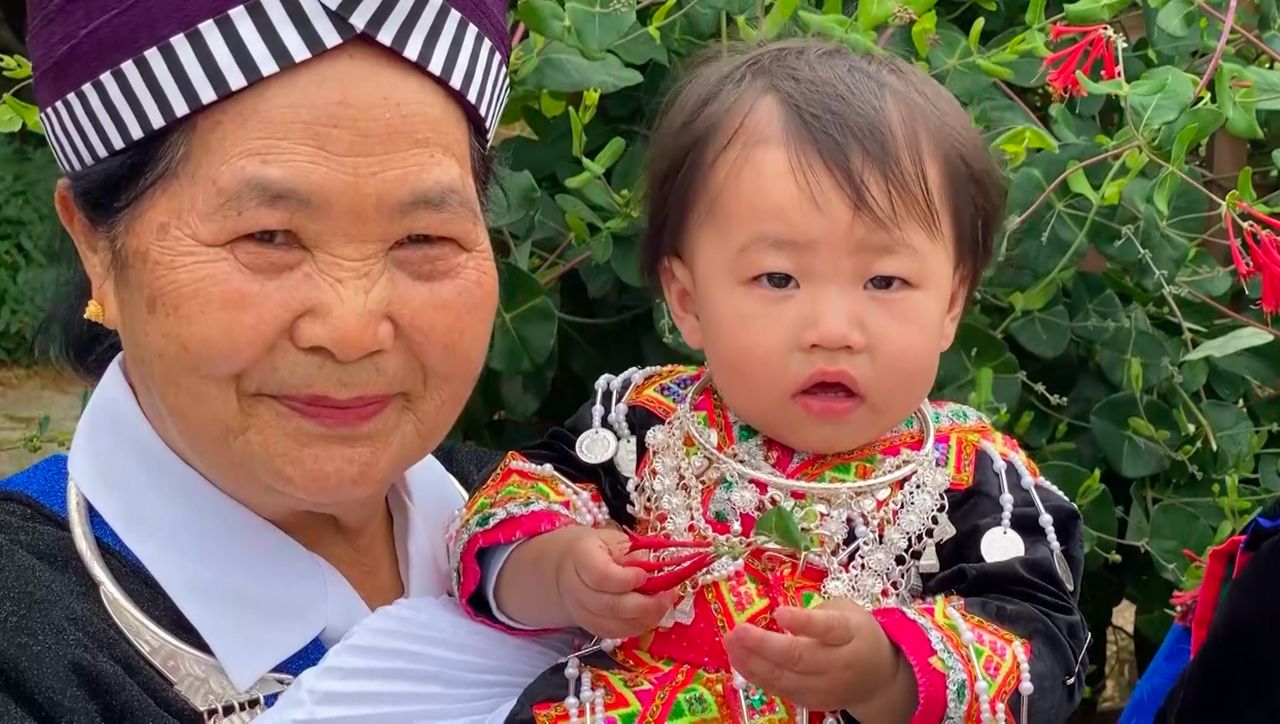APPLETON, Wis. — Far from their homeland, a group of Hmong elders still carry on a gardening tradition.
What You Need To Know
- Hmong elders volunteer time at Riverview Gardens in Appleton where they help grow food
- NEW Hmong Professionals wants to record their stories
- The elders also want to experience American culture
- As Hmong culture becomes more Americanized with each new generation, one group looks to document its history
Chee Thao came to the U.S. in 2003 and spoke to others through interpreter, Manimatana Lee.
“It’s very fun that I get to come here and garden. I’ve been gardening since I was seven years old,” said Thao.

Mao Vue arrived in 1989. She said she loves the benefits gardening can offer.
“I’m most excited about the exercise — that I’m getting to sweat out all the toxins and to keep moving so my body isn’t stiff,” said Mao Vue through interpreter Annmarie Vang.
The garden is an initiative of the NEW Hmong Professionals. Long Vue said the elders are like an encyclopedia for the culture.
“For us to understand who we are and to move on, we need to understand our parents, our grandparents, our elders,” said Long Vue, executive director for NEW Hmong Professionals.
He said their stories of leaving home and losing loved ones often aren’t shared.

“You’d be amazed. They’d be in tears," Long Vue said. "This group of individuals today, the elders, their husbands fought in the war and died in the war."
He said eventually he wants to build an audio archive of their stories. But first, he needs to build their trust.
Long Vue works and talks with them in the gardens. When the time feels right, he said he will start recording their stories.
The language and cultural barriers elders face can be isolating, but volunteering at Riverview Gardens twice a week gives them something to enjoy.
“I’m home all day and coming out to the garden is really good because we’re able to grow vegetables and bring it to donation and charity,” said Thao.
Harvested food is offered as a subscription service in the community. Portions also go toward food pantries and food banks in the area.

Long Vue said that over the years, elders experienced racism and felt disconnected as younger generations adopted American culture.
Yet, they’re still giving back, growing food for the community.
“Yes, we were forgotten, but we have no country, and not all people are bad,” said Mao Vue.
The garden allows the elders to be a part of something.
“We want to show the community that we exist, that we are here to stay, and that we are willing to help,” said Mao Vue
Outside of the garden, the elders also want to experience things younger generations enjoy, said Mao Vue.

Recently, the elders asked for and received a photoshoot. They witnessed their children and grandchildren taking and sharing photos. And they experienced it all while wearing their traditional Hmong clothing.
“I had a lot of fun at the photoshoot because it’s something that I’ve never done before,” said Thao.
Next up is a sightseeing trip to Chicago, which should take place later this summer.
“I think of Chicago as a traffic jam,” said Long Vue. “But for them, it’s fascinating because they’ve never been to Chicago. They see young couples going out there and visiting. You have to remember, they don’t get to go to many places.”



